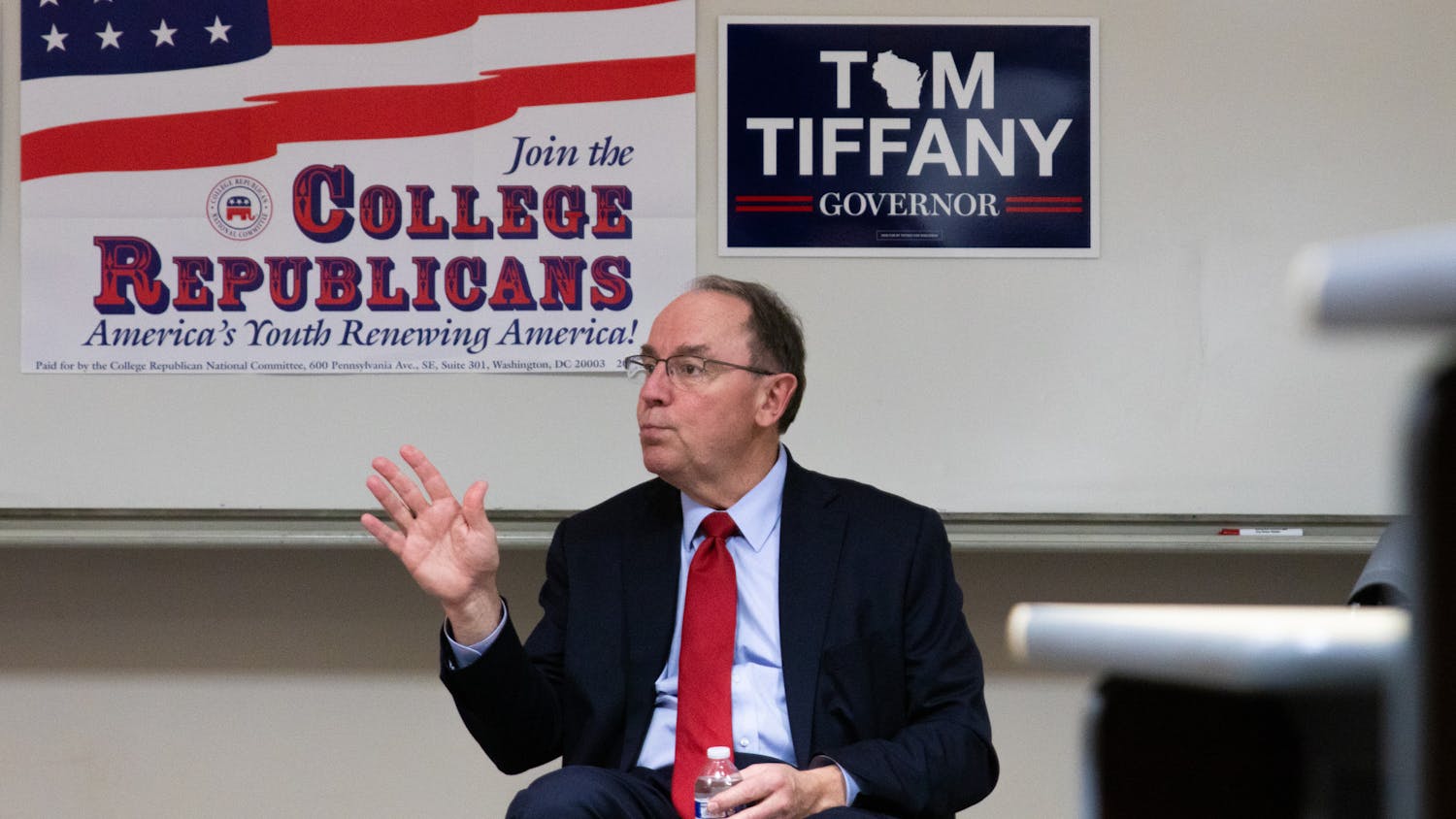These days, more people associate Beethoven with a slobbery St. Bernard than a deaf composer.
Yet even though classical music may not have a prominent place among students on campus, it is not necessarily dying out. Students and music instructors on campus hold a positive outlook on the future of classical music at UW-Madison.
UW-Madison sophomore Catherine McCarthy has high hopes for the classical music scene in terms of student performances.
""On campus, [the classical music scene] is getting much better, even though I don't think the rest of the university knows that, which is too bad,"" McCarthy said. ""There are symphony orchestras and chamber, and both are very high quality.""
Without even stepping inside Humanities, students can be heard playing a sonata in a duet or trio in the Humanities courtyard, at the corner of Frances and State Street or on the side of University Avenue, a testament to a surviving interest on campus.
UW-Madison sophomore Allison Jannette, a music student, thinks classical music is important for students on campus.
""I think for people like me, music is a really important part of life,"" Jannette said. ""It's a way of expressing yourself. For me, doing music education is just something that I want to share with younger generations.""
Other members of campus in the music profession similarly feel confident about the classical music scene on campus. Tyrone Greive, a music professor at UW-Madison, is just one among the many.
""I'm pretty optimistic about the future of classical music,"" Greive said. ""There are a lot of students who aspire to be musicians and music educators in school.""
However, some students say classical music has never been popular among the younger generation. UW-Madison junior and music student Kyle Davison said this is because classical music was not written for young listeners in the first place. In fact, according to an October 2008 Wall Street Journal article, classical music has been appealing to older generations because history suggests that as time passes, people become more acquainted with classical music.
""It's definitely true that classical music is less popular than rock, hip-hop, etc., but this is not at all a new phenomenon,"" Davison said. ""At least not until the late 20th century. It got its start in royal courts and in concerts that were mostly attended by wealthy socialites.""
Davison thinks the responsibility for making classical music relevant to younger people lies with today's composers. Performers and composers also need to improve how they promote classical music.
""I certainly do not mean that they should ‘sell-out' or compromise their work in any way, but I think that they need to demonstrate to the younger generation that classical music can be just as (or more) beautiful, exciting and innovative as other forms of music.""
According to Davison, others believe the younger generation does not listen to classical music because it is incapable of expressing their emotions.
""I think it is a mistake to blame the younger generation for not listening to classical music,"" Davison said. ""Many people see classical music as being less relevant to their own experiences and, if they have a narrow definition of classical music then they are probably correct.""
Therefore, some young people find contemporary music with emotional lyrics and themes more appealing to listen to.
There are a number of innovative ways toward a more optimistic brighter future of classical music.
Popularizing classical music
Through effort and new approaches, it is possible to help classical music become more accessible to students.
""There's a lot that goes into appreciating classical music, and for the most part, people who are informed the most will be the most supportive,"" Alyson Neuberger, a junior at UW-Madison, said. ""Classical music is a specialized discipline, not readily accessible to the outsider, which is part of its allure once you're a fan. As for younger generations, classical music is a pretty narrow umbrella.""
According to some UW-Madison music professors, early exposure to classical music can also help increase preference for classical music.
""Early proper music education at home and in school can be beneficial for children,"" Greive said. ""Musical talent is not inherited; therefore, it should be acquired through practice and listening.""
Although there is a lack of young audiences, it is possible to make the conditions better. Listening to classical music can be fascinating and enchanting even to younger generations. Now is the time for music leaders to think beyond typical models that have been applied for generations to stimulate the further growth of classical music.
""Composers should embrace new instrumentation, new compositional forms,"" Davison said. ""They should try to find venues outside of the traditional concert hall.""






